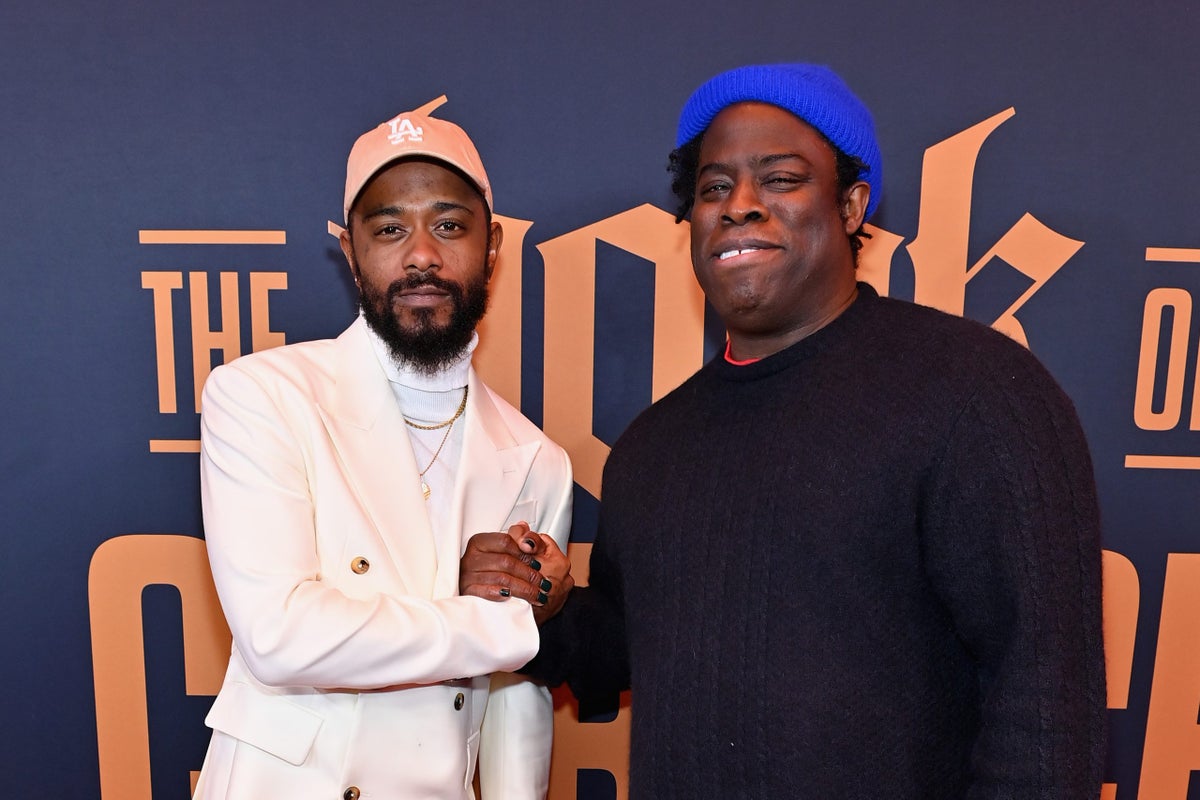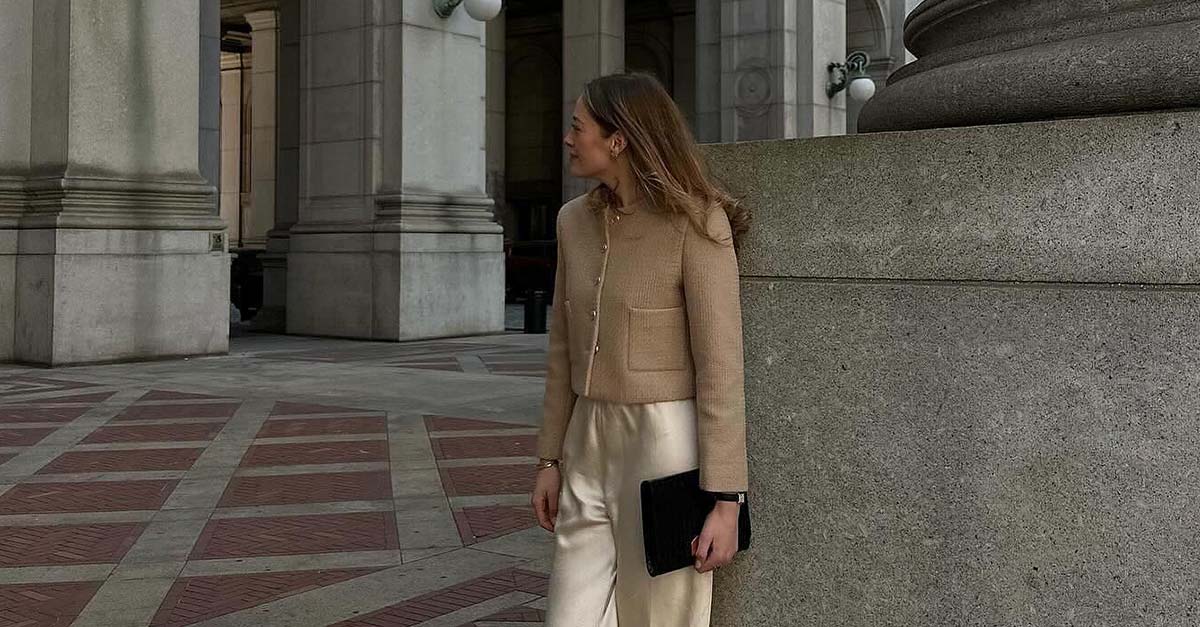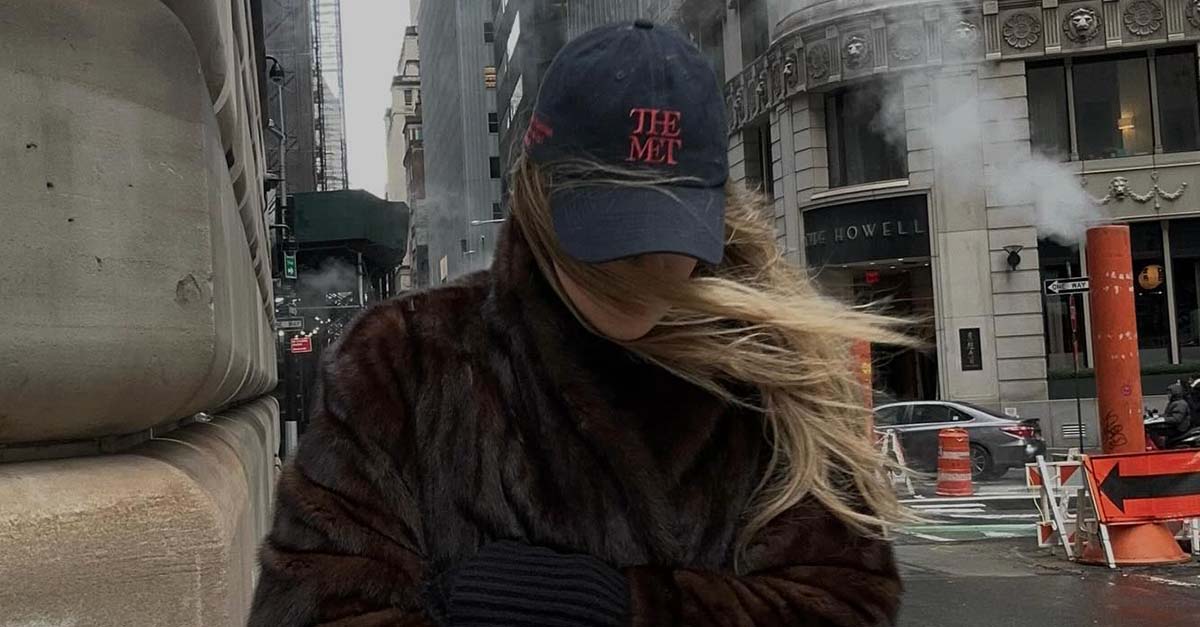
With The Book of Clarence, director Jeymes Samuel puts a creative twist on the story of Christ. Set in Jerusalem in the year A.D. 33, the film follows Clarence—played by Lakeith Stanfield—a young man grappling with daily obstacles, who eventually looks to capitalize on the rise of Jesus Christ, by claiming to be a new Messiah. During his journey, the titular character eventually finds purpose, thus creating a new legacy for himself.
Samuel, 44, also serves as the film’s writer, producer, and composer, making this project a true labor of love. Over two years after the premiere of this directorial debut, The Harder They Fall, The BAFTA Award winner is telling a new story, one that often goes unheard. Throughout history, there have been many accounts of Christ, his life, and his accomplishments. In this film, however, Jeymes focuses on a man’s quest towards finding himself, a narrative that resonates with many.
Although The Book of Clarence is based in a time long ago, its relatability still exists today. The miracles that Jesus performed gave people hope, and an optimism for the future. That same hope can be attached to anyone, because inspiration can come from several places. “We see in our lives every day that there are people who do things that are seemingly impossible,” Stanfield says. “Where I’m from, it’s impossible to achieve the things that I’ve been able to achieve, with the blessings that I’ve had, but also the hard work that I’ve put in. Where people like where Jeymes is from, I’m sure no one would’ve thought that he would be able to achieve the things that he’s achieved.”
“It’s nothing short of a miracle, quite literally,” he continues. “We can see these things play out in front of us every day if we’re paying attention. And so I think that’s why people are so closely aligned with this story, and for good reason. Most people in the world just want to do good. Good is God with another O. Everybody wants to be next to that goodliness, that godliness. That’s what everyone wants to achieve. You can put any kind of name on it you want. We’re all trying to achieve the same thing.”
ESSENCE: Jeymes, The Book of Clarence was several years in the making for you. What do you think prolonged the production of this amazing film?
Jeymes Samuel: Well, one, I was anonymous. I was an anonymous youth in the ‘hood of London. When I first had the idea for The Book of Clarence, I was a child. I probably was 13 when I decided I wanted to do this, because I was always shooting stuff. I had cameras. I wanted to do a biblical epic where the people look like my neighborhood, like the area I live in, basically the ‘hood. Whereas all those stories were pretty much about the ‘hood, but the Hollywood versions didn’t look like us. So I was there. Then I got older and I had the name of just what it was, and what this film was going to be, maybe about 20 years ago. It wasn’t 20 years in the making, but maybe like 20 years ago I had the name and knew. I was taking little notes and I wrote one song called “Verenia” featuring this Chicago legend called Terry Callier. I approached him and I said, “Look, I’m doing this movie, not now, but one day—I have the song.” And he sang the song for me, with me, and that’s in the movie. He passed away in 2012, and I promised him.
But what made it real was two things: One, 2017, for whatever reason, maybe the spirit took me and I just wrote the script. I just knew where the story was going and I wrote the script. Started composing the score and writing songs, and what made me know I was going to make it was meeting LaKeith Stanfield, because then I had no Clarence. I knew actors then, but still Clarence is a really layered, complex part, and he plays himself and his twin brother. When I met LaKeith, I knew that this film was real. I met him for The Harder They Fall. I was like, “Yeah, we’re going to do that, but we got something else.” Then, I knew the film was real.
LaKeith, in the film you played Clarence as well as Thomas. With you being such a seasoned actor, what’s your process like when you’re playing two characters as opposed to one?
LaKeith Stanfield: Well, I think at the beginning, one of the things I always want to do is situate a character in a context that feels real to me. I think it’s really important because what the goal is, especially with a movie like this, what you want to do is you want to ground the movie. And one of the ways you’re able to do that is by being authentic in a place where there’s a lot of fantastical, imaginative elements which are really beautiful. They only work if the world feels grounded and if we can believe that the world is here. So, what I wanted to do with both the characters was look at them and try to find things in them that I felt made them real to me. With Clarence, there was more context to work with because he’s a central character, and so I was able to see immediately where his humanity could lie in his art. Whereas with Thomas, we just have such less time with him, that I had to find moments to bring definition to the multi-layered aspects of him.
Of course, he’s bitter about something. He’s not happy with his brother. There’s some internal struggle and strife within the family. What could have caused Thomas to feel this way? And what unlocks eventually his love so that we see that he’s more than just a mean brother, because no one’s just mean to be mean. Anyone who’s mean, there’s some reason behind it. In fact, usually it’s because of a lack of love. So I wanted to kind of find that lack of love and where Clarence could fill that in for Thomas, and finding the differences between them on the base level. Then it’s about finding the technical differences between them, how they present themselves in the world, how they walk, how they talk, how they posture. If you notice, Thomas often has his hands behind his back. Clarence is often moving his hands. That was a conscious decision to show kind of the difference in their physicality.
Thomas walks with an upright kind of pep in his step, where Clarence kind of just flows in and out of situations. It just seemed to be more appropriate. Clarence’s hair could indicate to you the differences between him and Thomas. Thomas and his Afro, which is obviously well-kept and he has to keep it a certain way, where Clarence just looked like he just got out of bed, this is just what he does, but still looks fly. He got just this natural swag to him. And so I think I wanted to see that in the nuances in the character. So then it’s kind of just about putting the little finishing touches, the sprinkles, on top of them, and giving them that little extra salt at that point.
But it’s very fun with the rich characters that Jeymes writes, oh my God, what a beautiful canvas to be able to play. And I feel like he is an actor’s director in that sense, that he not only provides this beautiful canvas that he’s directly connected to because he wrote it, but also he gives you the freedom to explore. He’s very precious over his work, but also very collaborative with his partners in a way that you don’t usually see much. Usually people are imbalanced and they’re super precious and they don’t want you to change anything, or they’re so liberal where you might as well not have a director. And I think he strikes that beautiful middle balance. And with the support of him being behind the story, I always felt like I had something to fall into. And you need that when you’re taking on such big characters.
Jeymes, you produced, wrote and directed this film, and as we were saying earlier, y’all also did the music for it as well. What was your process when deciding the music? Was it something you were thinking about when you were writing the film, or did it kind of materialize after the film was done?
As I’m writing the scripts, I start composing the score. I listen to the dialogue and there’s no dialogue without melody. I believe that composers come onto movies too late. I’ve always thought that. You come on in post. So, when did you meet the director? When did you first start talking about the movie? Whereas we should be having these conversations with our composer when we know what filmmaking is, as soon as you have the script, you should have the director and composer. You should give the scripts to the composer. He should be coming up with motifs, melodies, because that will then dictate where you place the camera. So as I’m writing the script and I’m discovering all of this new information myself, the characters, I start finding their motifs in what they’re saying, the dialogue. I start finding all of the melodies in it. That would be the questions that you have the most, the thoughts, the things that you’re going to say with the most poignancy. I’ll find the melody in the script, and I let the whole thing speak to me. So I kind of do it all at once.
And then, when you cast the character, you give it away. Now, LaKeith was the only person on the planet that I could see as Clarence, that could play him. He was the only person. If he didn’t want to do the movie, my brother, I would not have shot the movie. I would not have shot the movie. Well, I would just follow him and bug him until he got a restraining order.
So, when you cast LaKeith—LaKeith is an accomplished and amazing musician—so he has such a musicality to everything he’s doing. When he tells you things and when he reads back dialogue and adds all his nuances and words, you find new melodies. So then you tailor everything to know what he’s presented you as Clarence and Thomas. But I need to have the foundation before I leave my bedroom. So that’s my approach. I do everything all at once. If that makes sense.
LaKeith, what do you think it is about the story of Christ that’s so captivating? And why has the story been so disputed throughout history?
I think a lot of the biblical stories have astrological implications. And I think that because of that they are quite universal truths that we understand to be pretty self-evident. I think if you are paying attention, you can see some of the universal themes in the Bible have been applicable to humanity since the dawn of time. And I think people identify with that and they recognize that. And because people hold these truths to be so personal, to be so instrumental in their lives, they identify directly with the texts, and they aren’t separate from it in any form or fashion. Therefore, arguing for the text or against the text is oftentimes literally a matter of life and death. People feel that this is so important that this gospel either needs to be heard and expressed in a specific correct way that they understand it, or that it needs to not be spoken about. This is a very close thing to a lot of people’s lives, and we understand that. We understand that very clearly.
And that is a point of importance for us going into the making of the film like this. We don’t want to be haphazardous and lazy in the approach. In fact, the truth of the matter is, this story is not about Christ or about religion in general. It’s actually about a man and his story, just to post a time and place where perhaps Jesus was walking with his disciples, talking to them and performing his miracles. Imagine someone at the time saw this happening. There must’ve been A, a lot of haters, and B, a lot of imitators. And we know that all too well, haters and imitators always want to follow the dude who’s doing the new thing, and doing the thing that seems impossible.
Then I think we see the universal themes in the story and we understand why there’s so much allyship with it, but also so much contention. But I think if people could realize that we are all trying to do the same thing, it really wouldn’t be that much argument. You could call it wherever you want to call it, you want the same thing I want, love, understanding, connection to share with your brother. We don’t want to have to carry a gun poking out a couch when you accidentally sit on it. But in the environment that we live in, sometimes we need a gun because we feel we need to defend ourselves. So hopefully we’re moving toward a space and place where we understand we can get to a space where we don’t need to have guns, man. All we need is conversation and understanding and art.
And the ability to express and survey and extract from art. It’s so important. And so that’s part of what we’re saying in this movie. We need to make movies like this. And this is a gift from God through us, through you, the audience. Someone came up to me the other day and was like, “Thank you for making this.” I said, “Don’t thank me, it’s for you.” Everybody who watches everything that we do, we did it for you, for us, because we’re one, we’re together. One nation under God.








